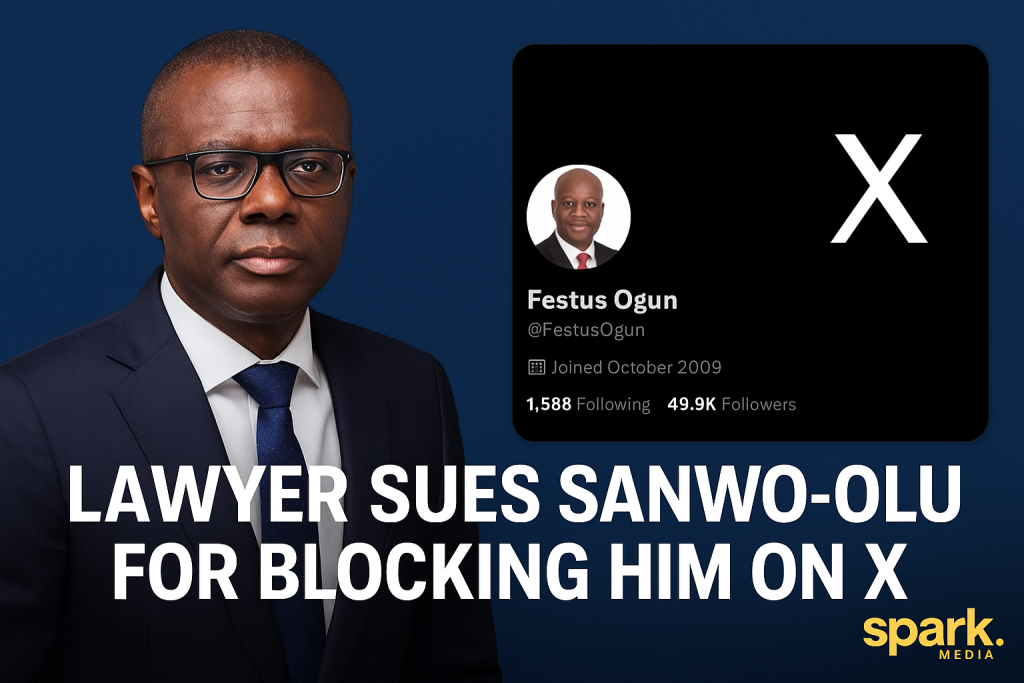
A Lagos-based human rights lawyer has made headlines as lawyer sues Sanwo-Olu for blocking him on X, sparking a nationwide debate on digital rights, freedom of expression, and accountability in governance. The lawsuit, filed by Festus Ogun, challenges the constitutionality of public officials restricting citizens’ access on social platforms widely used for official communication.
In 2021, human rights lawyer Festus Ogun—handle @mrfestusogun—was blocked by Lagos State Governor Babajide Sanwo-Olu on X following his vocal criticism over the #EndSARS protests. Feeling deprived of crucial updates from a public official, Ogun filed a lawsuit at the Federal High Court, Lagos, on August 29, 2025, claiming infringement of his fundamental rights.
Ogun’s suit argues that being blocked by a democratically elected official curtails his freedom of expression, his right to information, and is discriminatory—an unfair barrier to civic engagement. He cited sections 37, 39, 42, 45, and 46 of the Nigerian Constitution, along with the African Charter on Human and Peoples’ Rights.
In his originating summons (FHC/L/CS/1739/25), Ogun wants the court to:
He emphasized:
“This suit is not just about me… in furtherance of public interest and to set a precedent in our digital rights jurisprudence.” Premium Times Nigeria
Global jurisprudence supports Ogun’s case. In the U.S., the Knight First Amendment Institute v. Trump ruling affirmed that public officials cannot block critics if used as a means of public communication. Ogun referenced this to bolster his argument before the Nigerian courts.
As public officials increasingly use social media for official communication, questions of access and censorship are becoming central to democracy and transparency.